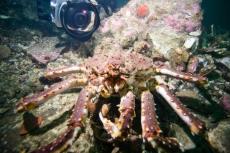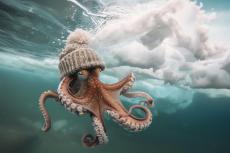Ships may introduce invasive species to Antarctica
A study shows that invasive, non-native species may find their way into Antarctica on ships travelling to the region for various purposes.
Research by the University of Cambridge and the British Antarctic Survey has shown that ships entering Antarctica waters can potentially introduce invasive, non-native species to the pristine, untouched environment.
This is a grave concern, and is one of the biggest threats to the region's biodiversity, as the native species there have been isolated for the last 15 to 30 million years. There may also be economic impact via the disruption of fisheries, according to Professor David Aldridge, from the Department of Zoology at the University of Cambridge. He is a senior author of the report, which was published recently in the Proceedings of the National Academy of Sciences journal.
Ships visit Antarctica for various reasons: fishing, tourism, research and supply. In the study, researchers traced the global movements of all the ships entering Antarctica waters and identified as many as 1,581 ports, located all over the world. These ports represent a potential source of non-native species.
In fact, there have been instances where foreign species like mussels, barnacles, crabs and algae attach themselves to the ship’s hull or are found on various parts of the vessel (like the water discharge outlet). Non-native species, if they find their way into Antarctic waters, could wreak havoc on the ecology of the region, as well as the fisheries in the southern oceans.
“The species that grow on the hull of a ship are determined by where it has been. We found that fishing boats operating in Antarctic waters visit quite a restricted network of ports, but the tourist and supply ships travel across the world,” said first author Arlie McCarthy, a researcher in the University of Cambridge’s Department of Zoology and the British Antarctic Survey.
Compared to tourism vessels, research ships tend to remain at Antarctic ports for a longer duration. On average, though, it were the fishing and supply ships that stayed in port for an even longer duration.
In addition, the researchers voiced concern about the movement of species from pole to pole. Such species may stowaway on tourist or research ships that spend the summer in the Arctic, then make their way across the Atlantic for the Antarctic summer season.
“There are strict regulations in place for preventing non-native species getting into Antarctica, but the success of these relies on having the information to inform management decisions. We hope our findings will improve the ability to detect invasive species before they become a problem,” said McCarthy.






































